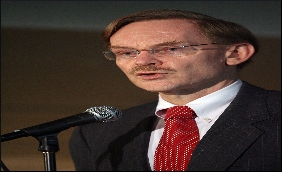|

|
2009 saw end of Third World, says Zoellick
|
|

|
|
| Top Stories |
 |
|
|
|
IANS | 15 Apr, 2010
The world has entered a new multi-polar economic order and 2009 saw the end of what was known as the Third World, said the World Bank president Robert B. Zoellick in Washington.
"It's time we recognise the new economic parallel. The outdated categorisation of First and Third Worlds, donor and supplicant, leader and led, no longer fit," Zoellick was quoted as saying by China Daily.
He said the world now was in a new, fast-evolving multi-polar global economy in which some developing countries had emerged as economic powers while others were moving toward becoming additional poles of growth.
He said the global economic crisis had shown that multi-lateralism mattered.
The developing world was not the cause of the crisis, but it could be an important part of the solution, he said.
The world would look very different in 10 years, with demand coming not just from the US but from around the globe, he added.
Asia's share of the global economy in purchasing power parity terms has risen steadily from 7 percent in 1980 to 21 percent in 2008. Asia's stock markets now account for 32 percent of global market capitalisation, ahead of the US at 30 percent and Europe at 25 percent.
Zoellick said that today's shifts open new opportunities for cooperation. However, the danger now is that as the fear of the crisis recedes, the willingness to cooperate will too.
"We already see the strains," Zoellick said. "The climate change talks in Copenhagen revealed how hard it will be to share mutual benefits and responsibilities between developed and developing countries."
|
|
|
| |
|
|
|
|
|
|
|
|
|
|
|
|
|
|
| |
| Customs Exchange Rates |
| Currency |
Import |
Export |
US Dollar
|
84.35
|
82.60 |
UK Pound
|
106.35
|
102.90 |
Euro
|
91.00
|
87.90 |
| Japanese
Yen |
54.30 |
52.70 |
| As on 16 Aug, 2024 |
|
|
| Daily Poll |
 |
 |
| Will the new MSME credit assessment model simplify financing? |
|
|
|
|
|
| Commented Stories |
 |
|
|
|
|
|
| |
|